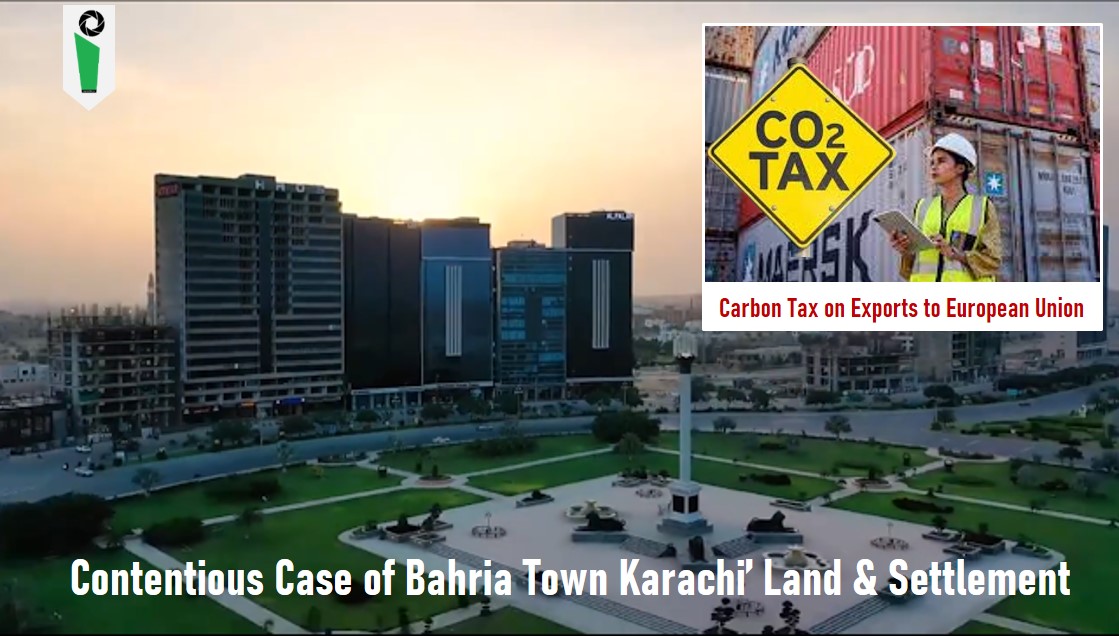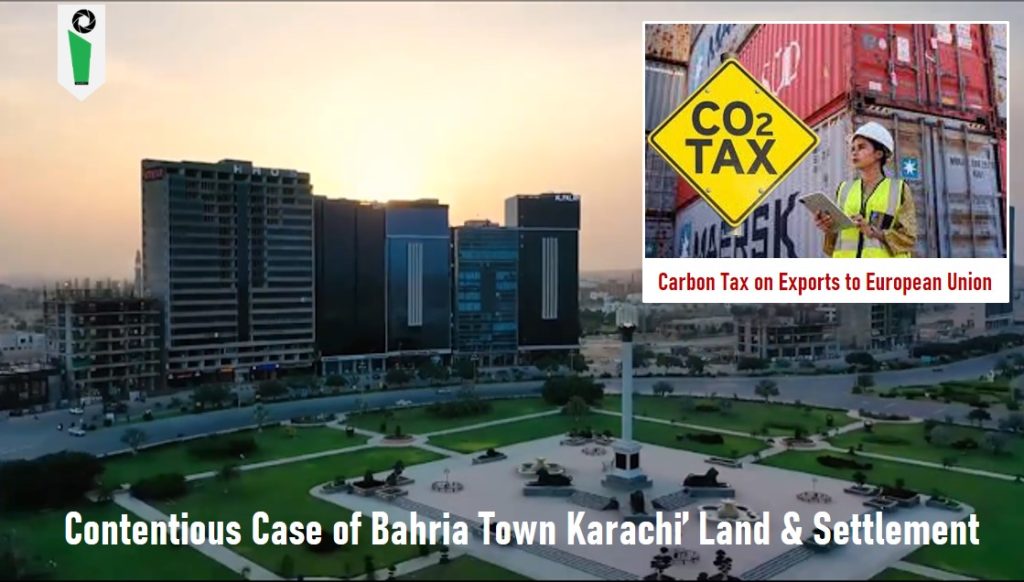
22 October 2023
The Contentious Case of Bahria Town Karachi’ Land & Settlement
The controversial settlement of the £140 million repatriated from the UK in Bahria Town case echoed this week at the corridors of judiciary, when the Supreme Court issued notices to 10 different entities and individuals who allegedly sent from abroad about £136 million and about $44m in remittances (around Rs35 billion at the time). “It would be appropriate to also issue notices to those who had remitted amounts from abroad,” said the order issued by a three-judge Supreme Court, consisting of Chief Justice of Pakistan Qazi Faez Isa, Justice Aminud Din Khan and Justice Athar Minallah, in connection with court proceedings regarding the implementation of its 2019 approval of a Rs 460 billion offer by Bahria Town Karachi for land in district Malir. In view of Bahria Town`s commitment the filing of reference by NAB was stayed, the order said, adding that only a total of Rs 60.72bn out of Rs460 bn was paid. Even out of this payment, Bahria Town paid only Rs 24.26 bn. The order also noted that some of the payments received by the court were not deposited by Bahria Town, instead the payment came from elsewhere. As a result, the court issued notices to the individuals from whom the payment was received.
Earlier Bahria Town (Pvt) Ltd Karachi approached the Supreme Court to seek a level playing field, alleging that a nearby housing project was given preferential treatment. The move came a day before the above scheduled hearing on the implementation of the Supreme Court`s March 2019 approval of BTLK`s Rs460 billion offer. In its application, the Bahria Town developer highlighted disparities in land pricing between the two entities. It claimed that the DHA City Karachi was allotted 19,640 acres at a cost of Rs 1.96 bn, equivalent to Rs100,000 per acre, whereas BTLK was provided with 16,896 acres at Rs 460 bn, or Rs 27.2 million per acre. Though both entities have 99-year lease terms iIt also claimed that DHA City enjoyed exemption from the capital value tax (CVT) on 11,640 acres and deferment on 8,000 acres. Another petition in the court also questioned whether the recovered settlement amount could be re-routed to pay off the liabilities of Bahria Town to the benefit of its owner instead of depositing this money in the exchequer.
Carbon Tax on Exports to European Union
The federal government is reportedly mulling imposing carbon tax on exports to the European Union (EU) to deal with Carbon Border Adjustment Mechanism (CBAM), intended to achieve European carbon neutrality by 2050. According to the UN, as of June 2021 there are 195 signatories to the Paris Agreement to limit their CO2 emissions. However, an agreement between the European Parliament and the Council of the European Union this month requires every company in Europe to begin reporting on imported goods that are “carbon emission-intensive” this month. The new regime also mandates that all carbon emissions be “financially offset” starting in 2026. According to analysts, that development requires what kind of electricity a company uses to produce its products will have a significant impact on its long-term prospects for success when exporting goods to the European Union.
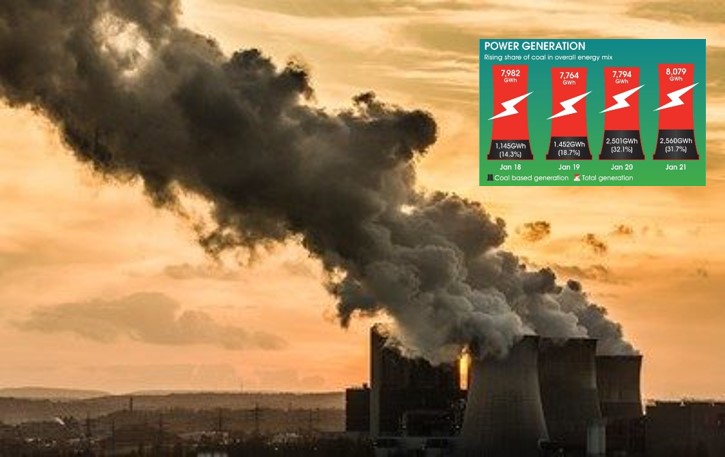
It means the competitiveness of the Pakistani businesses will go further down in the international market if we don`t invest in sustainable and renewable energy now. In simple words, products made by Pakistan`s export industries will become expensive within 10 years if their processing involves electricity generated by coal-based power plants. This will decrease our competitiveness if we keep expanding our reliance on Thar coal while ignoring renewable energy sources. Therefore, along with the current affordability crisis in the country`s energy sector, now the sustainability crisis is about to rattle our already struggling export sector. Pakistan, therefore, would have to rely on other measures for promoting sustainable production and de-carbonisation for that to maintain relevancy in the EU market.
Sindh High Court Actions against Encroachments
The Sindh High Court on this week directed the deputy commissioner (East), police and Rangers to remove encroachments from the land of housing society the Pakistan Post Office Employees Cooperative Housing Society. A two-judge bench headed by Justice Nadeem Akhtar also asked them to complete the operation and file compliance reports till Nov 14. The Pakistan Post Office Employees Cooperative Housing Society had petitioned the SHC in 2021 and contended that over 71 acres of the petitioner, located in Scheme 33, Gulzar-i-Hijri, had been encroached upon since 2016. In December last year, the high court had directed the Rangers and police to provide force to the district administration in order to implement its orders after the DC and SSP East had submitted that encroachment could not be removed despite several attempts, and sought additional force to get the land vacated.
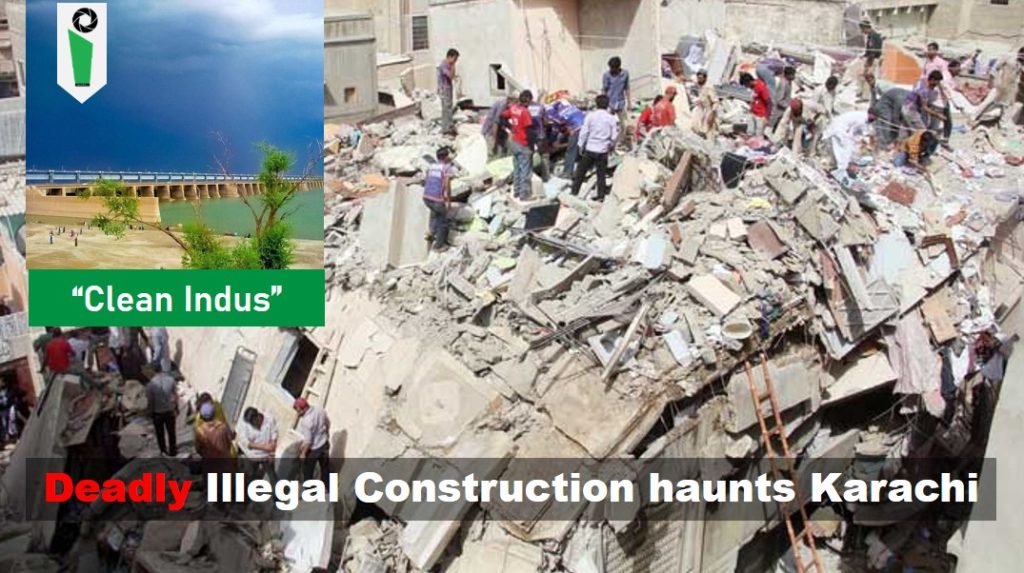
The same bench has expressed serious resentment over the Sindh Building Control Authority`s inaction with regard to the illegal construction of a building in Nazimabad and summoned its director general. The court also directed the DG to ensure demolishing of the building before the next hearing and sought a compliance report. Earlier, the high court had issued several orders for the demolition of the fives torey building after SBCA officials submitted that the same was raised without any approved building plan. While the sane bench in another case also directed the Sindh Building Control Authority to come up with a detailed report about action taken by its officers regarding demolition of an illegal building in Lyari. The nine storey building was raised on a plot measuring 57 square yards.
UN Report to phase down coal in Pakistan
According to a United Nation Report Pakistan is facing the critical task of phasing down its coal power plants, necessitating a careful examination of various factors like energy security, environmental impacts, socio-economic impacts of just transition, and feasibility of power generation alternatives. The report, “Phasing-Down the Use of Coal in Pakistan”, published by the United Nations Economic and Social Commission for Asia and the Pacific (UN-ESCAP) this week. The report points out that one of the main challenges of phasing out coal in Pakistan is the existing coal capacity and long-term agreements associated with coal projects, such as those under the China Pakistan Economic Corridor (CPEC). The government faces difficulties in shutting down these plants immediately due to capacity payments and circular debt issues. Though, it also mentions that global economic factors, such as the Russia-Ukraine conflict and Covid-related logistics issues, have led Pakistan to high natural gas prices and increased reliance on coal for power generation.
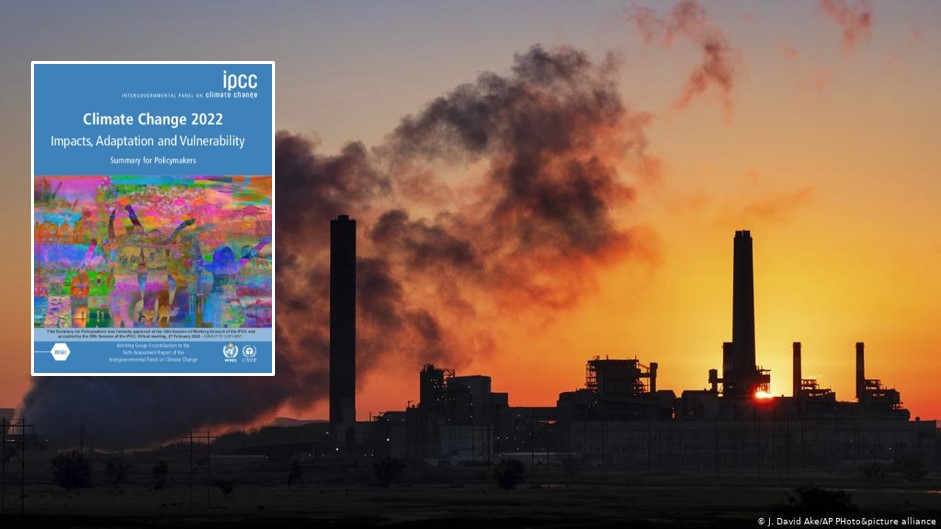
Given that nine out of a total of eleven of Pakistan`s coal-fired power plants have come online under the China-Pakistan Economic Corridor (CPEC), China`s announcement to stop investing in coal-fired power projects abroad post-2021 presents an invaluable opportunity for transitioning away from coal, the UN report says. The report emphasised that investments in greener energy need to increase significantly by 2030 compared to 2021 levels to put the country on a path to sustainability. This requires scaling up and reallocating capital towards low-carbon fuels, energy efficiency, while reducing investments in fossil fuels. Pakistan has abundant renewable energy resources but faces challenges through its limited grid infrastructure to support the integration of renewables. So maintaining grid stability, significant investment and coordination among stakeholders are required to upgrade and expand the grid to accommodate variable renewable energy generation.

